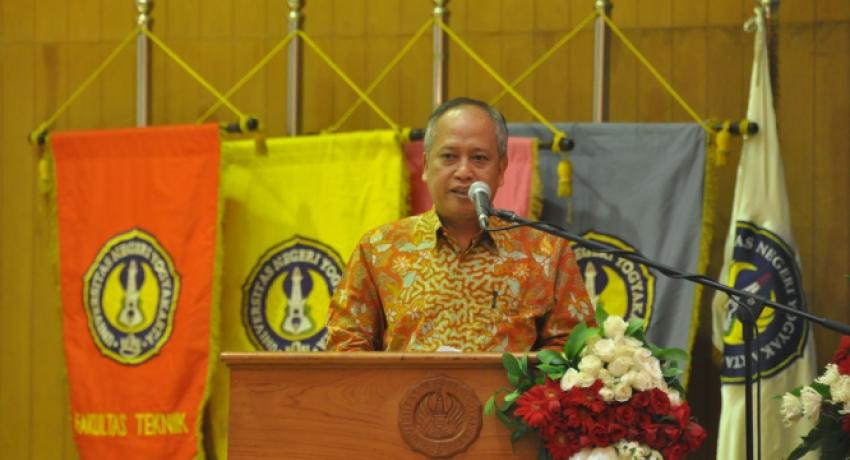Colleges should improve quality in today’s more intense competition, i.e. by way of training and innovation conducted by higher education. Higher education is considered good if it benefits industry and society. Higher education is expected to generate useful innovation through research. Then, research publication can be developed into an innovation. This is according to the statement of Minister of Research, Technology, and Higher Education, Prof. Mohamad Nasir, Ph.d., Ak. in a speech at the 2016 Indonesian Rectors Forum (IRF) in the Auditorium of Yogyakarta State University (30/1), which has been opened by the President of Indonesia, Ir.H. Joko Widodo (Jokowi). Further, the Minister says that the research is conducted in collaboration with the National Research Council and the AIPI (Sciences Academy of Indonesia) and will embrace universities in Indonesia to develop this research. "We encourage all the Rectors to enhance it," he said.
According to the Minister, the research will be developed in 7 fields, i.e. food and agriculture, health and medicine, ICT, transportation, materials, defense technology, energy and renewable energy as well as the maritime. FRI is expected to provide recommendations to improve the education system in Indonesia as well as escorting the research program.
The other main speaker, Prof. Dr. A. Syafii Maarif invites the participants to refer to the Preamble of 1945 Law which reveals that social justice is mentioned twice. "It means that Indonesia's independence was achieved with difficulty. Independence could be truly achieved when social justice turns into reality," he added. According to him, for improving the life of nation and state, and for the sake of social justice as sublime freedom in Indonesia, democracy system must be realized through the concept of "people sovereignty”. However, the principle of " people sovereignty " will be difficult to achieve if the money politics still arises, almost without control.
In the same occasion, the Legal Director of the National Narcotics Agency (NNA) Darmawel Aswar SH, M. Hum explained that NNA has sought to prevent illicit narcotics by optimizing analysis of intelligence, surveillance or control delivery and Undercover Buy in order to break the chain of international narcotics syndicates, operating the equipment in supervision and inspection in cooperation with officers of Directorate General of Customs and Excise as well as improving coordination and cooperation with the relevant agencies either within the country or abroad.
Chairman of Corruption Eradication Commission, Ir. Agus Raharjo, the MSM in his speech said that based on Three Pillars of Tertiary Education (Tri Darma Perguruan Tinggi), campus becomes forming incubator and supervises while guiding' anti-corruption and integrated leader '. Furthermore, the anti-corruption education must be socialized in College as compulsory subjects. "In addition, there needs to be an activity of socialization/anti-corruption campaign/integrity" said Ir. Agus Raharjo, MSM. Moreover, internal integrity as well as transparency and accountability must be promoted among officials since in the campus through Train on Trainer (ToT) of anti-corruption education for lecturers.
Dr. KH Hasyim Muzadi said that mental revolution starts from strengthening of social capital, namely good behaviour. "Social capital consists of Pancasila (Five Principals), a form of moral personality and culture of Indonesia," said Dr. KH Hasyim Muzadi. He suggested there are 4 pillars or foundation of the social capital, that is politics, economy, law, and culture.
The IRF agenda was held until Friday (31/1) and attended by more than 400 Rectors from universities and private sectors from all over Indonesia. (ratnae)





